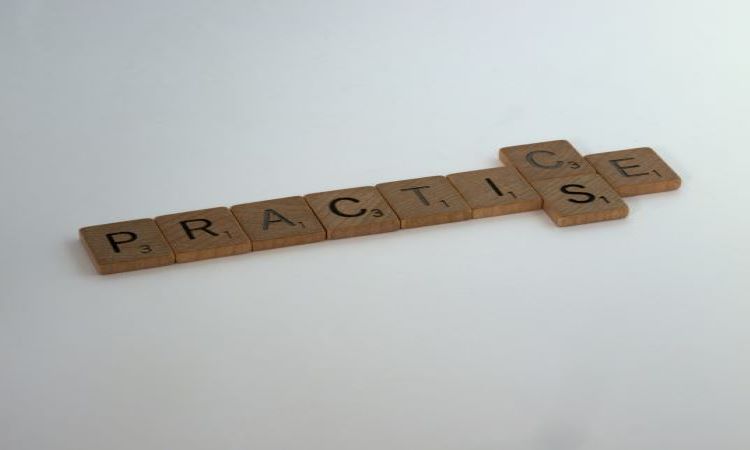
Leadership Workout: 6 Ways to Develop your Leadership Muscles – without going to the gym!
“We are what we repeatedly do. Excellence, then, is not an act, but a habit.” Aristotle
People get better when they practice. We’ve all heard the phrase “Practice makes perfect” and know that practice plays a key role in enabling us to “fake it until we become it.”
Dr Anders Ericsson formed the basis for the widely accepted 10,000-hour rule to become an expert, which formed the focus of Malcolm Gladwell’s best seller ‘Outliers’.
When it comes to developing leadership capability, why is it that despite previous investment in coaching or some sort of leadership training programme, some people are unable to change?
A person can participate in leadership training in which they learn theories, read case studies, and watch video interviews of successful business leaders. They can complete assessment instruments that evaluate their leadership style, get feedback from others about how they’re perceived yet still be unable to build trust with their team members. Still be unable to listen to them. Still be aware of their mood and how that impacts those around them. Still be unable to deal with their emotions when they get frustrated when things don’t go according to plan.
This happens because people do not necessarily change as a result of gaining knowledge.
People change because they engage in new practices that change who they are.
How frequently do the leaders in your organisation spend time consciously practicing their leadership skills?
How frequently do they pro-actively focus on developing what they are doing? What they are practicing?
Recent independent research by Ben Laumann, Masters Student at UCL, set out to prove the value of practice as a key method for personal improvement. His research focussed on the core leadership skill of managing a difficult conversation, and in particular, giving feedback.
His research found that performance was 20% higher in learners who had actively practiced, compared with those who had read or observed the new skill.
Are the leaders that you work with doing the right kind of practice?
Not all practice makes perfect. Your leaders need a particular kind of practice – deliberate practice – to develop expertise.
Deliberate practice is a methodology that people use to get better at anything. Below are 6 steps based on Ericsson’s research. They are principles that your leaders can tap into to learn more quickly and achieve their leadership goals.
Take a leadership workout in 6 steps…
Like most worthwhile pursuits, developing proficiency in any skill isn’t easy. So when it comes to developing leadership skills your leaders will need to care enough and be willing to devote considerable time and effort to working on them.
Vague aspirations like “getting better” isn’t going to cut it. Deliberate practice relies on small, achievable, well-defined steps that enable people to work their way towards meaningful improvement. Goal setting isn’t like making a New Year’s resolution and crossing fingers. Instead there needs to be thoughtful planning, clear areas for improvement and the creation of a specific plan.
“This is a fundamental truth about any sort of practice: If you never push yourself beyond your comfort zone, you will never improve.”
― Anders Ericsson, Peak: Secrets from the New Science of Expertise
For goals to spur improvement, they need to constantly challenge current abilities. Simply repeating skills a leader already know how to do is an unproductive cycle that won’t actually enhance skill level or improve performance.
This kind of prolonged effort will be frustrating and uncomfortable at times. But pushing through those tough spots often leads to significant improvement. One of the foundational aspects of deliberate practice — what makes it so effective — is its regularity.
“Without feedback,” Ericsson says, “either from yourself or from outside observers — you cannot figure out what you need to improve on or how close you are to achieving your goals.”
Feedback is essential as a means of pinpointing strengths and weaknesses. This is the only way for leaders to identify strengths and work through gaps.
Because deliberate practice requires full attention, it can only be sustained for a short period of time. Laboratory studies of extended practice have capped the optimal time at one hour per day, three to five days a week. It’s important to offset the intense effort of deliberate practice with purposeful rest and recovery.
One of my favourite jokes is that ‘the only place where success comes before work is in the dictionary’. There is surprisingly little hard evidence that anyone can attain any kind of exceptional performance – such as being an exemplary leader – without spending a lot of time perfecting it. Time to take a leadership workout?
No matter what your leader’s current skills levels are, if they put in the time and effort to tap into the proven principles of deliberate practice, they – and you – are sure to see some progress.
Leadership Workout: 6 Ways to Develop your Leadership Muscles – written by Jo Manton.
Jo Manton is passionate about enabling senior leaders to develop their leadership skills and build their team’s capability. She particularly enjoys facilitating culturally diverse groups and one-to-one executive coaching. Her approach is collaborative, practical and outcome orientated. Jo works with line managers to de-mystify leadership and create a clear vision and action plan, helping them to reach their goals quicker than they would on their own.
Read more blogs about Leadership: How to Drive Positive Behaviours

+ 4 more
Executive coach working with individuals & teams to increase leadership performance